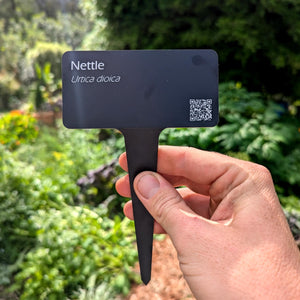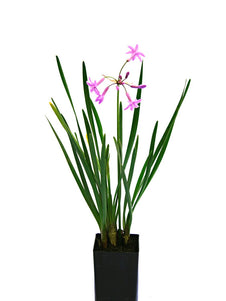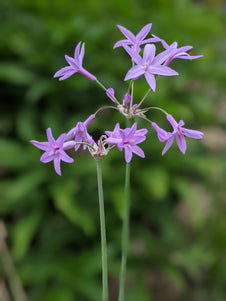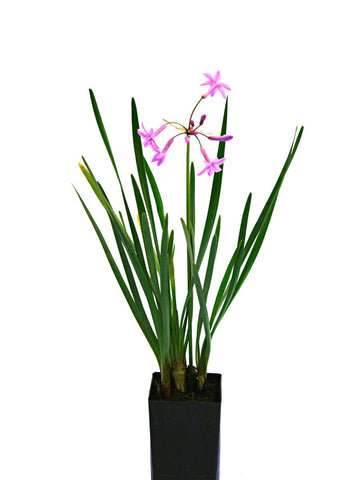





Society Garlic
Society Garlic

- Low stock - 4 items left
- Inventory on the way

Usually available: All year
Life cycle: Perennial
Height: 40 - 60cm
Position: Sun / part shade
Soil preference: Well drained
This is how we pack and send your Herb Plants to all states except TAS & WA
You will receive
- 1 Society Garlic Herb Plant in a 50 X 75mm tube - General growing instructions
All of our Herb Plants are grown organically with certified organic potting mixes and fertilizers
Botanical Name: Tulbaghia violacea
Society garlic is a perennial herb that belongs to the onion family. It is native to South Africa and is known for its ornamental and culinary uses. The plant produces small, fragrant flowers that are pink or lavender in colour and bloom in late spring or early summer.
The Society garlic plant is typically grown for its attractive foliage, which consists of narrow, grey-green leaves that have a garlic-like odour when crushed. It is easy to grow and can reach a height of up to 60cm and a spread of up to 60 cm. Society garlic can be grown in containers or garden beds and prefers well-draining soil and full sun to partial shade.
Culinary Uses: Society garlic is commonly used as a substitute for garlic in cooking. The leaves and flowers have a milder flavor than traditional garlic, making it a good option for those who don't like the sharp taste of regular garlic. The leaves can be chopped and used in a variety of dishes, including soups, stews, salads, and roasted meats. The flowers can be used as a garnish.
Medicinal Uses: Society garlic has been used for medicinal purposes in its native country. It is believed to have anti-inflammatory, anti-fungal, and anti-bacterial properties. It has been used to treat a variety of ailments, including coughs, colds & flu.
In the Garden: Society garlic is also used for ornamental purposes. The plant is often used in garden beds, as it adds a unique texture and colour to the landscape. It is also used in container gardens and as a border plant. The flowers attract butterflies and other pollinators, making it a good choice for a pollinator garden.
All information provided on this website is for informational purposes only. Please seek professional advice before commencing any treatment.






